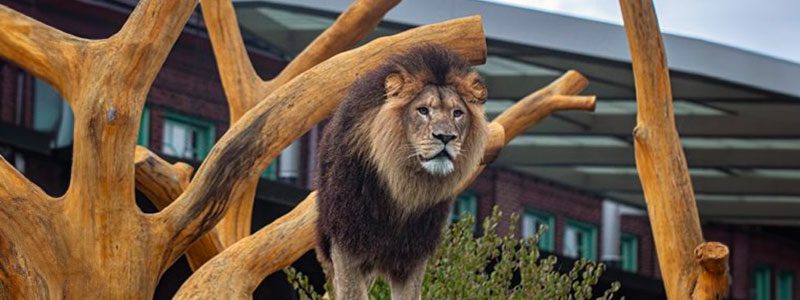
Crested Guineafowl
Regenstein African Journey
On January 14 Regenstein African Journey will be closed.
Did You Know?
- Guineafowl are related to pheasants. Species in this genus, Guttera, can be distinguished from other guineafowl by the tuft of black feathers atop their head.
- The term “crested guineafowl” refers to several different populations, and scientists are still debating exactly which should be classified as species or subspecies.
- These birds are capable of short bursts of flight, but not long, sustained flight.
Don’t See the Animals?
Why aren’t animals visible at all times? To promote positive animal welfare, we provide animals with choices. They can choose to spend time in areas that are out of public view.

Take an Animal Home with You
Overview
Scientific Name: Guttera pucherani
Class: Birds
Diet: Seeds, fruits, shoots, and other plant material; insects and other invertebrates
Range: East Africa
Endangered Status: Least Concern
More Information
Crested guineafowl are part of the Numididae guineafowl family. They are medium-sized birds about 18 inches long, that spend most of their time on the ground or in low branches. They have dark body feathers with small, light spots, and a featherless neck and face. They live in savannas and dry forests and are non-migratory. Crested guineafowl are active during the day and take cover or swim during the hottest part of the day. They are social and gather in flocks of up to 50.
These birds are monogamous or serially monogamous and males do a courtship dance. Nests are basically scrapes in the ground. Females lay 3–4 eggs per clutch and incubate them for about three weeks. Both parents tend to hatchlings, who fledge at 2–3 weeks old. Crested guineafowl are common within their range, with a stable population.
